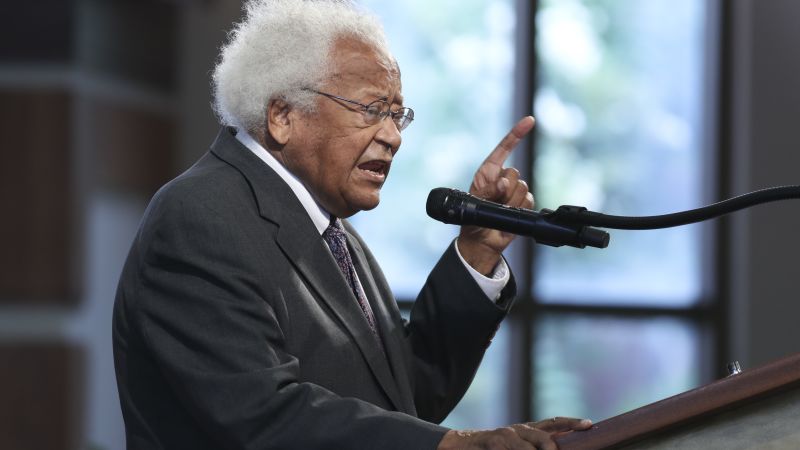The Rev. James Lawson Jr., a prominent civil rights leader and advocate for nonviolent protest, has passed away at the age of 95. Born in Uniontown, Pennsylvania, Lawson's commitment to nonviolence was instilled in him at a young age when he slapped a white child who used a racial slur against him. In the late 1950s, Lawson served time in prison for refusing to register for the military draft and traveled to India to study Mahatma Gandhi's nonviolent philosophy.
Lawson mentored a generation of civil rights activists including John Lewis, Diane Nash, James Bevel and the Little Rock Nine. He was instrumental in the formation of the Student Non-Violent Coordinating Committee (SNCC) and drafted its statement of purpose. Lawson befriended James Earl Ray, the man who confessed to killing Martin Luther King Jr.
Throughout his career, Lawson led workshops on nonviolence for protesters and organized sit-ins at segregated lunch counters, picket lines and boycotts at stores that catered only to white customers. He was a key figure in the Nashville Sit-Ins, Freedom Rides, Birmingham Children's Crusade, Montgomery bus boycott and Memphis sanitation workers strike.
Despite facing brutal opposition from segregationists and law enforcement, Lawson believed that nonviolence was the best way to fight segregation by shocking the nation's conscience with passive acceptance of violence. He once said, 'It is only when the hostility comes to the surface that the people see the character of our nation. Chances are that without people being hurt, we cannot solve the problem.'
Lawson's legacy extends beyond civil rights activism as he also taught at Vanderbilt University and was a pastor at Holman United Methodist Church in Los Angeles for 25 years.
The Rev. James Lawson Jr. will be remembered as a champion of nonviolence, an architect of the Civil Rights Movement, and an inspiration to generations.





